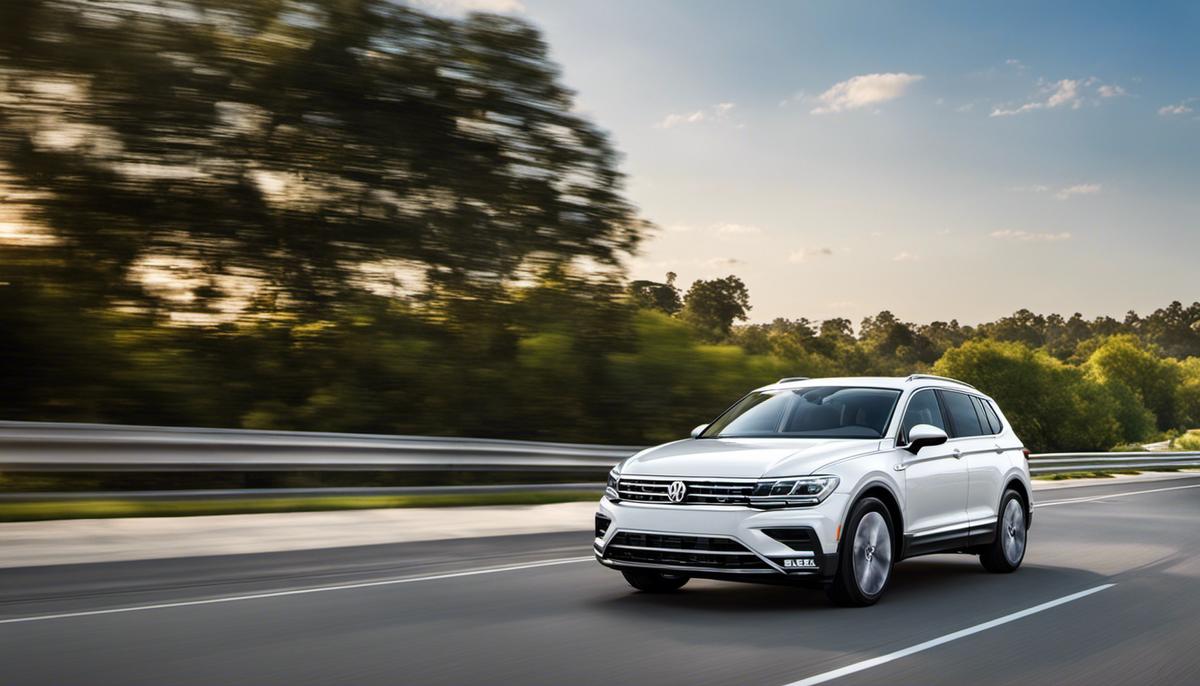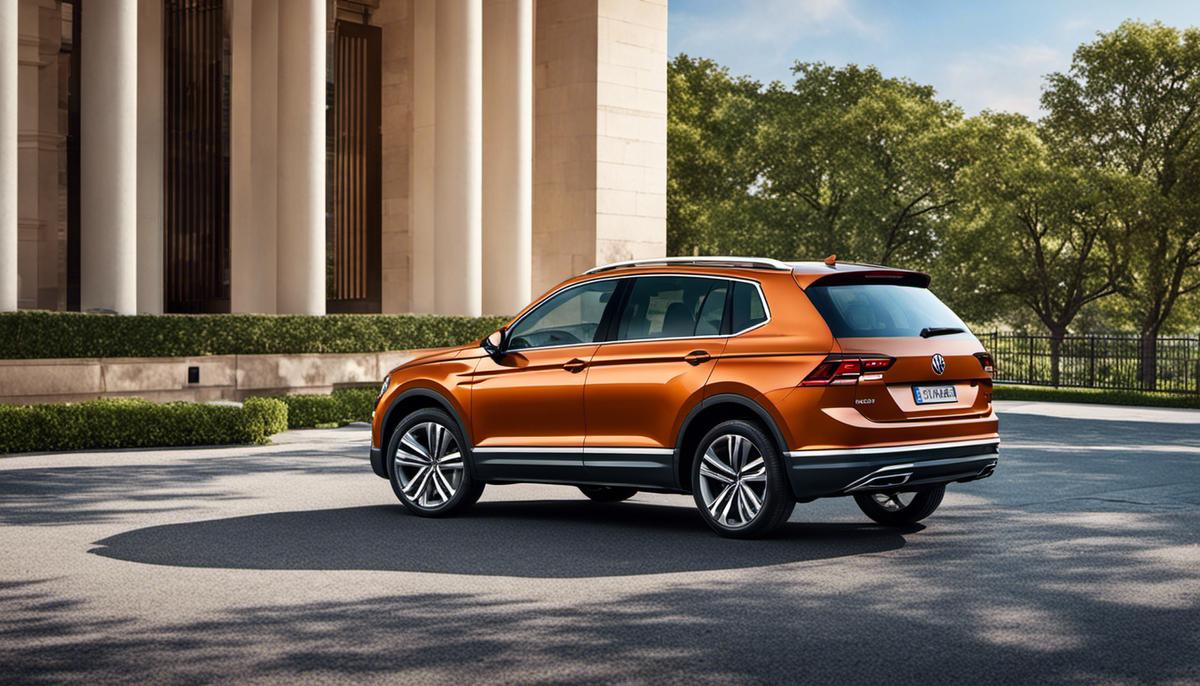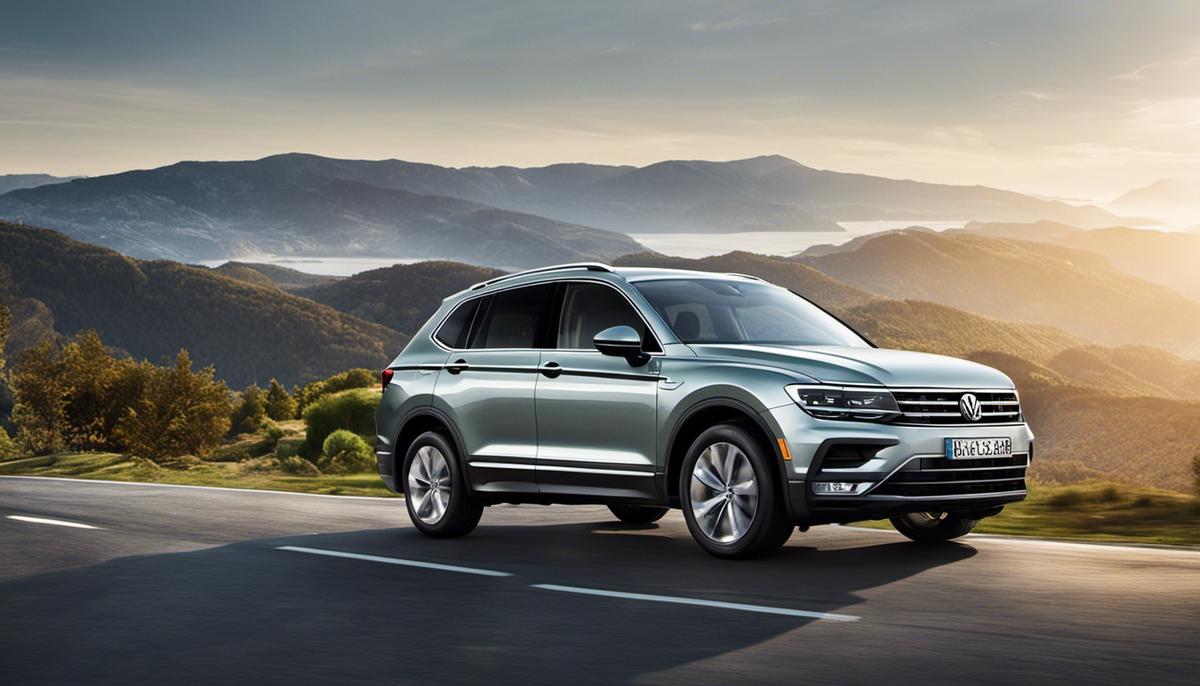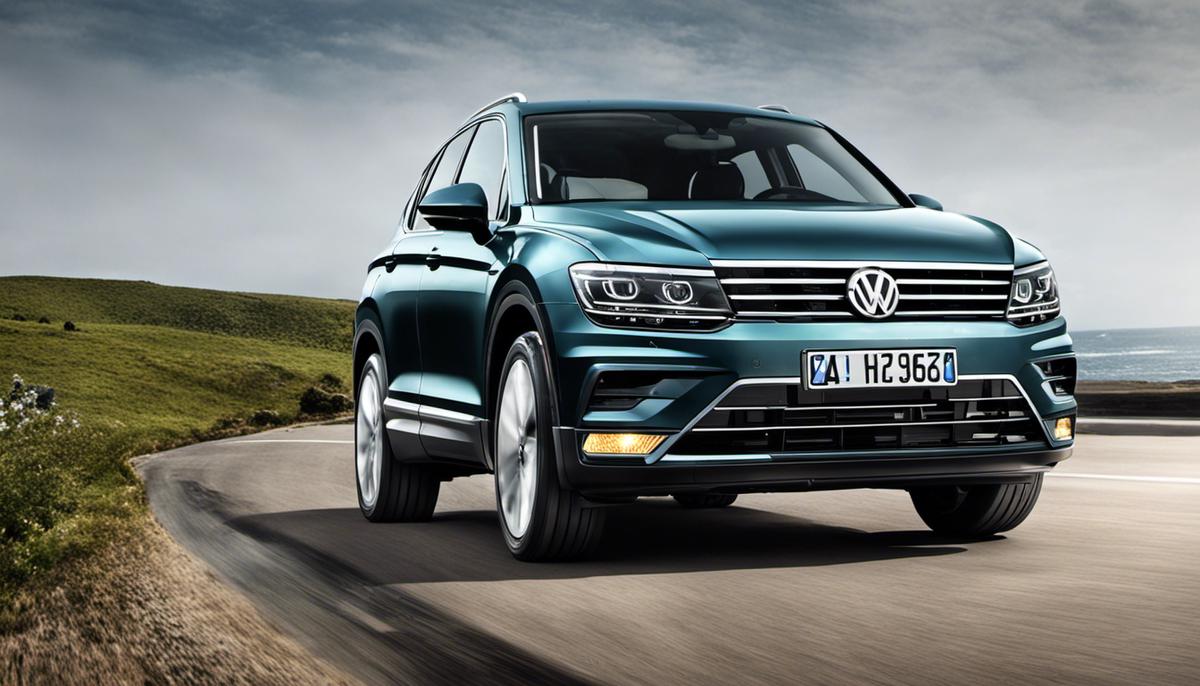Understanding 2020 VW Tiguan’s Fuel Economy: A Tech Enthusiast’s Perspective

Last Updated on October 17, 2023 by Christ
As conscious choices towards environmental sustainability, efficiency, and cost-saving measures become more prevalent, prospective automobile buyers are paying more attention to the fuel economy of the vehicles they consider. A compact crossover SUV gaining renown for its fuel efficiency is the 2020 Volkswagen Tiguan. Boasting impressive fuel efficiency rates, both on highways and in city conditions, this vehicle prompts a broader discussion about consumption trends in the automobile industry. Through the exploration of its fuel-saving technology and user experiences, one can glean insights into the many facets that contribute to its notable fuel economy. This discourse also opens avenues to evaluate and envision potential arenas for advancements in the vehicle’s future iterations.
Contents
Fuel Efficiency of the 2020 VW Tiguan
In a world where automation and technology rule supreme, it is only prudent to discuss a marvel of engineering that considerably impacts these spheres – The 2020 VW Tiguan. Beyond its sleek design and top-notch amenities, what truly sets it apart is its striking fuel efficiency. The launch of this model echoed Volkswagen’s vision of merging environmental consciousness with automotive pleasure, a vision that throws light on the future of vehicles.
Tiguan’s fuel economy strongly competes with its counterparts owing to its 2.0L TSI engine, perhaps one of the most fuel-efficient powertrains Volkswagen has ever developed. The turbocharged in-line four-cylinder engine, paired with a direct-injection system, works wonders for fuel efficiency. According to the Environmental Protection Agency (EPA), the 2020 VW Tiguan comes with a fuel economy rating of 23 mpg in the city and 29 mpg on the highway for front-wheel-drive versions.
However, multiple factors can affect the intricacies of fuel efficiency, including driving habits, temperature, tire pressure, and vehicle condition. Thus, while Tiguan claims a respectable 23/29 mpg (city/highway), real-world efficiency may vary.
Comparing the 2020 VW Tiguan with similar models by other car manufacturers reveals a fierce battle. For instance, the 2020 Toyota RAV4 packs a punch with a fuel economy of 27/35 mpg (city/highway), which outshines the Tiguan. Meanwhile, the 2020 Mazda CX-5 delivers 25/31 mpg (city/highway), putting it in a similar range to the Tiguan.
In the same market space, the 2020 Ford Escape comes in with a slightly less impressive figure of 27/33 mpg (city/highway). The 2020 Hyundai Tucson, on the contrary, lags behind slightly at 23/28 mpg (city/highway). The 2020 Chevrolet Equinox might have comparable elegance, but it falls short with a fuel economy of 22/29 mpg (city/highway).
Technology enthusiasts often stress the importance of efficiency and automation—an ideology mirrored by the 2020 VW Tiguan. Although some competitors might edge it out in the race for maximum fuel economy, the Tiguan still holds its own in the compact SUV sector.
No matter how numerically appealing, a vehicle’s worth is not solely measured by its fuel economy. The efficient 2.0L TSI engine, an 8-speed automatic transmission, comfortable interiors, and state-of-the-art tech integrations make the 2020 VW Tiguan a dynamic vehicle that doesn’t lump all of its allure into a single attribute. The culmination of these facets delivers an automotive experience that blends practicality, comfort, and sustainability all in one exquisitely engineered bundle.
The conversation surrounding fuel efficiency is indeed crucial in this digital era. However, let’s not forget the multifaceted nature of technology and engineering. It’s the harmonious blend of various elements that create perfect harmony, and the 2020 VW Tiguan exemplifies this principle beautifully.

Technology incorporated in the 2020 VW Tiguan for fuel economy
Heading straight into the crux, which is the technologic components boosting the 2020 VW Tiguan’s fuel efficiency, one can’t overlook its turbocharged 2.0-liter four-cylinder engine. This muscular engine, despite its high power generation ability, reflects an impressive fuel economy. Contributing to this potent blend of power and efficiency is direct fuel injection technology, which accurately delivers the right amount of fuel to the cylinders, neglecting waste and ensuring optimum combustion.
Keeping up with the rising demand for clean technologies, VW Tiguan 2020 comes bolstered with a Stop-Start System that functions to reduce idle fuel consumption. In the urban traffic scenarios where waiting time relates directly to fuel wastage, this system pauses the engine during idle and restarts it when the brake is released. This technological gem reduces extra fuel burn, significantly enhancing its fuel efficiency.
Delving further, we find the Automatic Post-Collision Braking System, a feature often not included in the landscape of fuel efficiency. Post-collision, vehicles tend to move erratically, consuming more fuel. This conduct is effectively curtailed with the Automatic Post-Collision Braking system, which slows down the vehicle after a collision, ensuring less fuel use and increased safety.
Interestingly, VW Tiguan 2020’s fuel prudence isn’t just bolstered by robust hardware but also smart software components. The Driving Mode Selection feature is a clear example. Drivers get to optimize their drive based upon the conditions – Normal, Sport, Custom Off-road, or Snow. Each mode adjusts throttle response, steering, and other parameters for maximum efficiency – a noteworthy feather in the tech cap of the Tiguan.
Engine efficiency aside, Tiguan’s aerodynamics significantly contribute to its fuel economy. Equipped with active grille shutters that open and close based on speed, temperature, and air conditioning requirements, this innovation mitigates drag, thereby reducing fuel consumption.
In conclusion, it is this potent collage of varied, nuanced technologies coupled with state-of-the-art engineering that makes the 2020 VW Tiguan highly fuel-efficient. Not merely a shiny technological star, it offers a testament to the role of technology in crafting possibilities of sustainability in the automotive industry. This resilience and adaptability of technology make the 2020 VW Tiguan an exemplar for fuel-efficient vehicles, pushing the boundary for competitors to catch up.

User Experience of the 2020 VW Tiguan’s fuel economy
Turning to users experiences and feedback concerning the fuel economy of the 2020 VW Tiguan, insights are power-packed and technology-driven. Many owners enthusiastically applaud Volkswagen’s strides in technological innovation and affix said evolution firmly and justifiably on the Tiguan’s fuel efficiency capabilities.
Combing through multiple forums, online discussions, and reviews, users express serial approval for the integration of VW’s technology into the Tiguan’s fuel-saving features. It looks as though Volkswagen really hit the nail on the head with the 2020 Tiguan, as a bulk of car owners laud the car’s Start-Stop System. This Travis-Bickle smart tech shuts off the engine when the vehicle comes to a stop and fires it back up when the accelerator is pressed, aiding in significant fuel conservation. This is automation not just putting in an appearance for the sake of it but solving a real-world inconvenience.
Experiences of car owners bolster the efficiency of Tiguan’s 2.0 TSI direct fuel injection engine. Users nod to the noticeable decrease in fuel consumption without sacrificing performance. This affirms that Volkswagen’s commitment to integrating cutting-edge, environment-friendly innovations is paying off by rendering a longer distance per gallon compared to conventional engines.
The unanimous applause seems to tilt towards the Active Grille Shutters. It’s a smart, effective system that regulates air entry to the engine area. By optimizing airflow, it enhances aerodynamics and reduces resistance, thereby enhancing fuel efficiency. Feedback suggests this intelligent mechanism rendered Tiguan a more economic choice.
The Driving Mode Selection also won users’ admiration. By enabling the driver to select from different modes, this feature optimizes fuel consumption according to the driving conditions. Users note that this intelligent tech has impressive results across city driving, heavy traffic, high-speed cruises, and off-road adventures. The Tiguan seems to keep its cool during every drive, promising less sweat at the fuel pump.
However, even technology aficionados are realists. Isolated incidents of lower fuel efficiency than claimed have been noted in some feedback. These experiences can often chalk up to factors beyond the vehicle itself, including driving style, weather conditions, or inconsistencies in fuel quality. VW needs to persuade some users that the Tiguan can consistently deliver top-tier fuel economy under a wide variety of conditions.
But outliers notwithstanding, the 2020 VW Tiguan leaves a lasting impression, acting the blueprint for future fuel-efficient vehicles. Offered in the Tiguan, these tech-driven features redefine how we perceive fuel efficiency, taking users on a big-drive-dream journey with minimal fuel intake and cutting-edge automation.
As the convergence of technology and automotives accelerates, the 2020 VW Tiguan stands there, not light years ahead, but certainly miles, championing how technology can be leveraged to generate significant, tangible, real-world outcomes. The user experiences not just confirm VW’s tech-savvy methods but deliver a spirited testament of the seductive potential of technology in shaping the future of fuel efficiency and automotive industry at large.

Potential Improvements to the VW Tiguan’s Fuel Economy
Having established the Tiguan’s role within fuel efficiency and automation in the automotive industry, it’s crucial to suggest additional strategies to further improve the fuel economy of this model. Technology, as a major driver of progression, offers various routes to optimize fuel economy.
One potential means to enhance the Tiguan’s fuel economy could be the incorporation of electric power, forming a hybrid powertrain. This set-up consists of a combustion engine paired with an electric motor being fueled by a rechargeable battery. The advantage is twofold; reduced fuel consumption and lowered emissions. While VW has made strides with their ID series, incorporating hybrid technology into a proven model like the Tiguan could introduce these benefits to a broader audience.
Furthermore, the Tiguan could benefit from an enhanced aerodynamic design. Although VW already employs active grille shutters, advancements in computational fluid dynamics allow engineers to optimize the full-body design of a car, reducing drag significantly. Enhanced wheel-arch vents, rear spoilers and underbody treatments can all contribute to reducing wind resistance.
Weight is also a crucial factor in fuel efficiency. Implementing lightweight materials such as high-strength steel or carbon fiber reinforced polymer, used extensively in racing and performance vehicles, could result in substantial weight reduction. At the same time, the structural integrity and safety of the Tiguan wouldn’t be compromised.
Last but not least, VW could take a step further with the implementation of predictive technology. Use of Artificial Intelligence (AI) algorithms can analyze various parameters such as route, traffic, and weather conditions and adjust the vehicle’s performance parameters accordingly. Fuel economy benefits could be achieved by automatically selecting the best driving mode or modifying engine management settings based on upcoming terrain.
While these ideas might represent significant investments, as tech continues its rapid advancement, these technologies are becoming more financially feasible. By equipping the Tiguan with these cutting-edge features, VW could further strengthen the vehicle’s role as an exemplary model in the automotive industry when it comes to fuel economy.
Remember, every step towards improved fuel efficiency means a step towards a sustainable future. And given the Tiguan’s standing, any advancements will set a standard for others to follow. In the fast-evolving world of automotive technology, staying ahead doesn’t just mean adopting new trends – it means setting them.
As always, it will be fascinating to see how rapidly-evolving technology continues to shape automotive design and engineering, and in turn, how these developments define the future of the automotive industry for both manufacturers and consumers. With continual refinement and enhancement in its technology, there’s no doubt that the VW Tiguan and future models will play a significant part in this exciting journey. So, stay tuned!

Throughout the exploration of the fuel economy in the 2020 Volkswagen Tiguan, it is evident that a lot of thought and technology has been put into optimizing fuel efficiency. User experiences and expert opinions point towards an overall positive reception of the vehicle’s performance in this aspect. Although the compact SUV performs admirably, the feedback and constant march of technology reveal opportunities for improvement. As competent as the 2020 VW Tiguan is in harnessing fuel-saving measures, the forward trajectory of automobiles hints at possibilities for even greater strides towards fuel efficiency. Therefore, while the SUV remains a competent contender in the realm of fuel economy, it stays tuned for advancements that future iterations may bring.
Leave a Reply